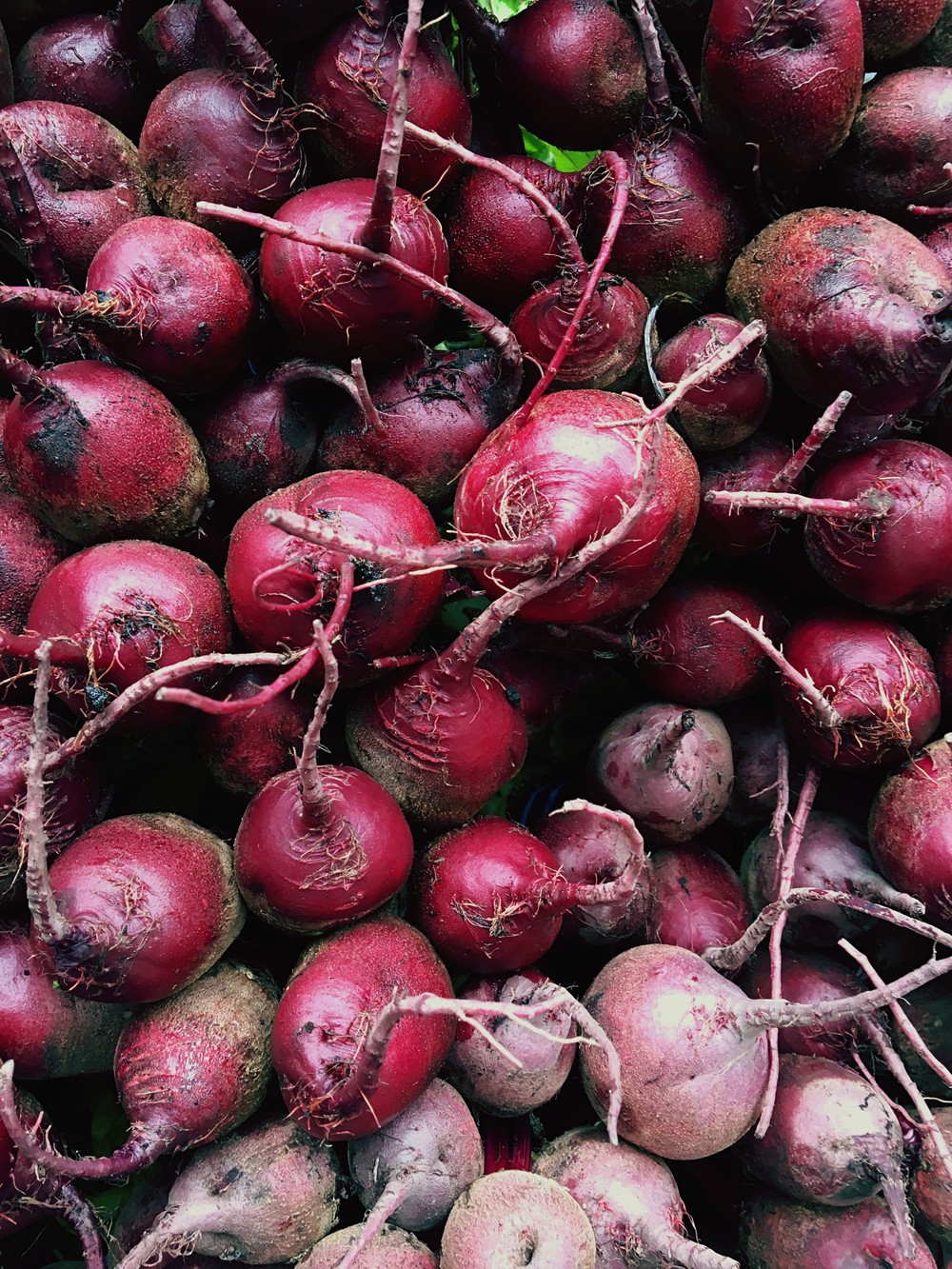Beetroot – “nutrient powerhouse”, magic juice: What do you know about it?
According to the Cleveland Clinic, beets are pretty special. They are one of the very few vegetables or fruits with a deep purple-red color and that beautiful color carries a unique subset of antioxidants and nutrients than other colored products. . The ruby red color of beets comes from a natural plant pigment called betalain.
Betalains are phytonutrients that contain loads of antioxidants and choline. They have anti-inflammatory properties, and studies have shown that betalains can reduce the risk of certain cancers and slow or even reduce tumor cell growth. Betalain is found in the flesh and skin of beets, but degrades when cooked. Beets, raw or steamed, will give you the greatest increase in betalains.

Beets (the greens that are edible – and delicious!) are packed with iron, high in nitrates, beta-carotene, folic acid, and vitamins A, B & C. Beets contain all the B vitamins, along with potassium, the aforementioned iron, manganese and magnesium. The iron content in beet greens is higher than in spinach.
As a nutritional powerhouse, beets are also high in fiber and encourage the growth of good bacteria in your gut. We need plenty of healthy bacteria in our digestive system to help fight disease and boost our immune system. Fiber also improves digestion and reduces the risk of constipation.
That’s the whole scoop on beetroot, now let’s get to the beat with beet juice. Advocates of this drink believe it gives them extra energy during exercise, improved athletic performance and more. Let’s explore!
What are the health benefits of beetroot juice?
Some studies show that beetroot juice can boost endurance, help you exercise longer, improve blood flow, and help lower blood pressure.
Lower blood pressure: Several studies published in journals such as Hypertension and Circulation found that people who drank beet juice instead of plain water saw less blood clots and lower blood pressure after three hours. An association was also found between drinking beetroot juice and a 13% increase in muscle strength in people with a history of heart failure. However, another study showed that people who drank 16 ounces of beetroot juice lowered their systolic blood pressure by an average of 4 or 5 points. The best nitrate energy.
Vitamin C: Beetroot juice contains vitamin C, an antioxidant that boosts immunity and helps protect cells against the damaging effects of free radicals. It also supports collagen production and helps with iron absorption.

Potassium: This can help with athletic performance. It is an electrolyte that helps fight muscle cramps, weakness and fatigue, and helps nerves and muscles work.
Betalains: Betalain is really good – strong antioxidant, anti-inflammatory and may prevent some cancers and tumor cells.
Improve fitness: There may be some legitimacy to this much advertised claim. It can improve athletic performance and reduce muscle fatigue by improving oxygen delivery and blood flow to the muscles. A 2019 study funded by the National Institutes of Health found that cyclists who drank beetroot juice for a week showed improved performance. They were also faster, completing a 10K course in 1.6% less time. This occurred in both high-altitude and low-altitude environments, compared with their beet juice-free colleagues. Researchers suggest that the high nitrate content in beetroot juice is converted to nitric oxide in the body. This improves circulation, relaxes and dilates blood vessels and increases oxygen in the blood.
Does beetroot juice have any side effects?
In most cases, people can safely eat beets or drink beetroot juice without experiencing any negative side effects. However, some people may experience some of the following symptoms.

Beeturia: This is something to keep in mind because otherwise it can be shocking at first. Beeturia is a discoloration of urine caused by eating beets or consuming foods/beverages colored from beets. Your urine when affected will range in color from deep red to pink. It can also make your stools dark and/or tarry. This condition does not affect everyone; it is estimated that it is about 14% of the population.
Beeturia seems to be more common in people with iron deficiency. Beetroot juice, with its pigment concentration, can cause beetroot urine at a higher rate; One study found that seven out of eight people who drink beet juice regularly will experience it. Beeturia, while a bit weird – or entertaining, depending on your perspective – is harmless.
Kidney stones: Beets and beetroot juice are rich in oxalates. Oxalic acid, oxalate are natural compounds that will bind with minerals like calcium and form kidney stones. Other indicators that your oxalate level is too high include painful or grainy bowel movements, painful urination, mood swings, skin rashes or hives, dizziness, fatigue, and trouble concentrating.
FODMAPs: Fermentable oligosaccharides, disaccharides, monosaccharides, and polyols (FODMAP) are fermentable sugars that perform their fermentation in your colon. They are great to consume, but they are difficult to absorb, which means they can cause bloating, pain, and stomach cramps. If you have small bowel bacterial overgrowth or irritable bowel syndrome, then FODMAPs in particular are not your friend and should be avoided.
Allergic reaction: People who are allergic to beetroot may experience hives, rashes, strained vocal cords, or even anaphylaxis, which causes the immune system to release large amounts of chemicals that can shock you. . A sudden drop in blood pressure and narrowing of the airways causes breathing obstruction.
Liver damage: The good news is that beetroot juice is actually rich in iron, copper, phosphorus and magnesium. But that’s also bad news. Iron, copper, phosphorus, and magnesium are all metals, and if you consume them in excess, they build up in the liver, potentially damaging the liver and pancreas.

Hemoglobin disease: When all those minerals and metals build up in our bodies, it’s likely that we end up getting more iron than we need. This is called hemoglobinopathy and it can be harmful. Symptoms can include an irregular heartbeat, decreased hormone production, and lethargy or low energy.
So what is the verdict? Is beetroot juice a panacea? Overall, we can surmise that most beetroot juice is pretty good for you. It is packed with vitamins and minerals, is rich in antioxidants, and can temporarily lower blood pressure. However, for all things, moderation is key. Eating beets is said to be a better option. When you juice beets, you lose the fiber they contain and you end up eating more sugar than you would if you ate a beet or two.
* Invite readers to watch programs broadcast by Vietnam Television on TV Online and VTVGo!
at Blogtuan.info – Source: vtv.vn – Read the original article here


